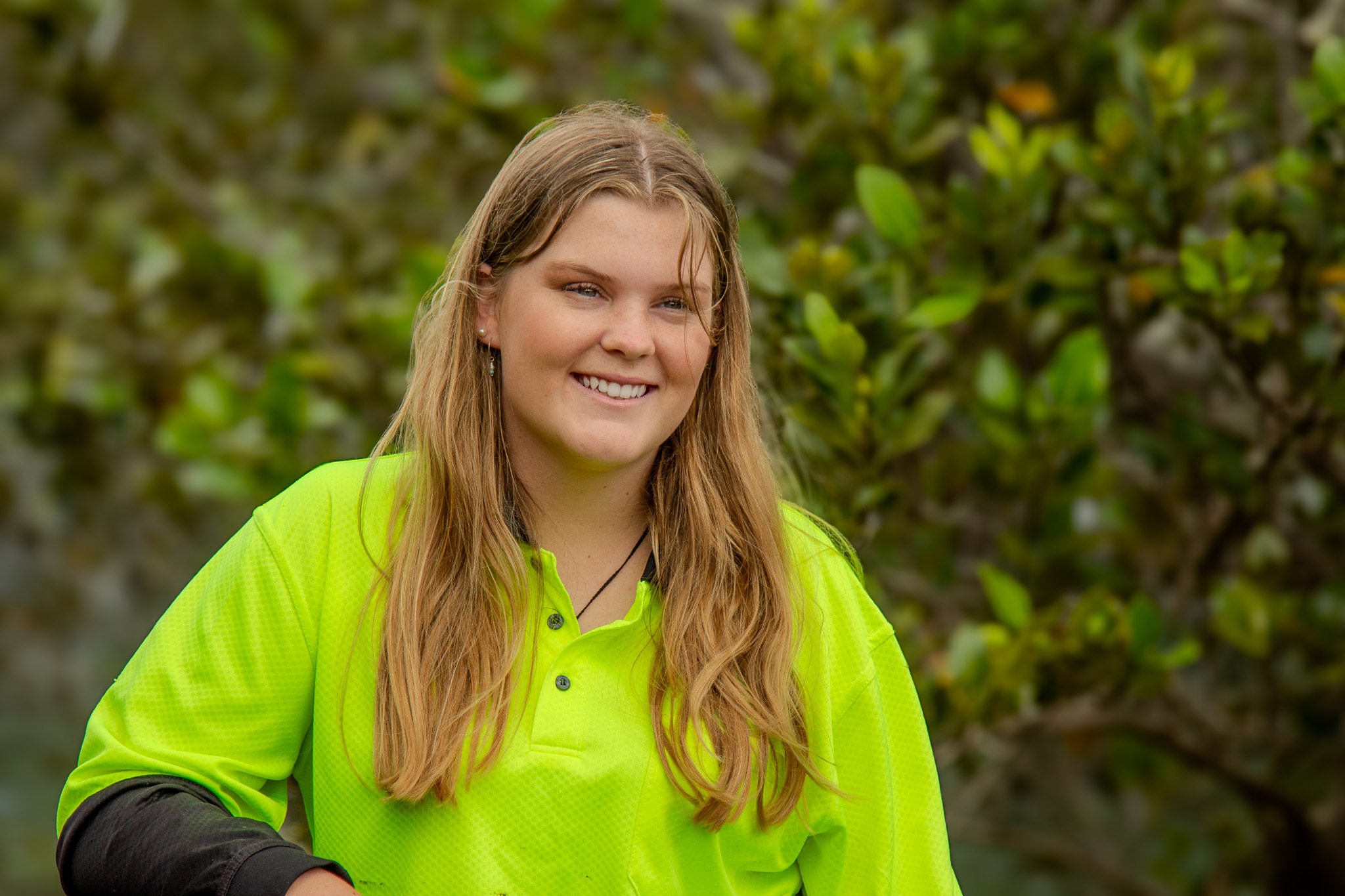Groundbreaking soil research wins high school student the Prime Minister’s Future Scientist Prize

MEDIA RELEASE: 2023 TE PUIAKI KAIPŪTAIAO ĀNAMATA FUTURE SCIENTIST PRIZE
Sunny Perry has discovered that some soils in Northland are highly corrosive – acidic enough to eat away at concrete foundations and damage ecosystems.
Sunny was a Year 12 student at Kerikeri High School when she completed the project which earned her the Prime Minister’s Future Scientist Prize.
Sunny’s research has the potential for wide-reaching impact, by generating new data that will change the way that landowners and councils manage land.
The problem
Sunny says that the idea for her research came when her father, an engineer, told her about potential acid sulphate soils (PASS). These types of soils, when exposed to oxygen, generate sulfuric acid, which can have a detrimental impact on biodiversity, infrastructure, and human health.
He explained that not much is known about whether these types of soils are found in Northland, and Sunny decided to investigate further – “I found it quite interesting how one type of soil can be so damaging for the environment and damage infrastructure and the ecosystem.”
Sunny did preliminary research, and found maps of these soils for Whangarei, and some for the Kaipara District, but none for the Far North District.
“My project was about mapping where these soils are, and trying to predict where they can be found in Northland.”
Based on her research, Sunny knew that PASS are formed from soil that is rich in organic matter, waterlogged, and deficient in oxygen. In those conditions, microbes and bacteria in the soil are forced to use anaerobic respiration which converts sulfates into sulfides.
She put together a research plan, selecting sites in wetlands to begin sampling, trying to find the “mysterious soils”. She also used historical records to identify low-lying sites which had been wetlands about 10,000 years ago. Based on these predictions, she hypothesised that she would detect PASS at 70% of her selected sites.
The discovery
Over the span of her fieldwork, Sunny collected 480 samples from 20 sites across the Far North region – all while completing her normal schoolwork.
She developed a Geographic Information System (GIS) map to help her predict sites which might be likely to have PASS, and modified a method for sampling and testing from the Australian National Acid Sulfate Soils Guidance.
Sunny developed a procedure involving bagging, vacuum-packing, and chilling her samples – which significantly increased efficiency and accuracy compared with the methods described in the Australian manual.
She reduced errors by including triple trials for each depth, calibrating the digital pH meter, and thoroughly cleaning her equipment to prevent cross-contamination.
Sunny’s results showed that her predications were very accurate – she detected PASS at 90% of the sites, including inland sites where PASS had never been recorded before.
What damage can PASS cause?
Sunny explains that when these types of soils are exposed to air, iron sulfides can react rapidly with oxygen to produce sulfuric acid. Sulfuric acid in soils can have a range of negative effects, including for plants, animals, humans, and can even “attack” materials such as concrete.
Positive impact
Importantly, PASS can be treated to reduce this danger, for example by adding lime (calcium carbonate) to the soil to neutralise the acidity. Therefore, Sunny’s results will be useful for the agricultural and building industries in Northland, and for efforts to preserve biodiversity in and around waterways and the natural environment.
Sunny hopes she can take her research further – “with more development to my map and further refinement I’ll have a map that can be used by land developers and councils to show what soils need to be treated and which soils to avoid”.
Sunny’s chemistry teacher, Jackie Robertson, who is Head of the Science Department at Kerikeri High School, says she is incredibly proud of Sunny and her pioneering research.
“It’s just wonderful what she’s achieved. She’s a lovely girl and she deserves to get this award.”
She says Sunny’s enthusiasm and love of science can inspire other girls to get into science – “she’ll go a long way”.
Kerikeri High School Principal Mike Clint says he has known Sunny since she started at the school in year 7 and has watched her grow into “a really confident, capable, very able student”.
“Sunny’s award is huge for her and we’re really proud of it, but it’s also great recognition for our hard-working science department. It’s going to set the bar really high for students to come.”
The experts on the selection panel were very impressed with the scale of Sunny’s research and its potential applications for management of land use.
Sunny plans to use this prize to finance her university education, but with a broad interest in the world of science, she’s still deciding what she plans to specialise in.
